Saudi Ministry of Culture and GESDC gather thought leaders to align finance, design, and data governance for the 21st-century city
VENICE, Italy — In the shadow of Venice’s ancient palazzos, an unlikely group gathered last week to tackle one of the world’s most pressing questions: How can money build better cities for everyone?
The three-day Global Stratalogues, organized in partnership with Venice Tech Hub and featuring a high-level delegation from the Gulf, Europe, South Korea, the US, and South America, was hosted by the Ministry of Culture, the Architecture and Design Commission of the Kingdom of Saudi Arabia at the Saudi Pavilion at the Biennale Architettura. It showcased the transformation of Najdi architecture in central Riyadh, as well as the link between heritage and contemporary urban life. Their mission? To reimagine how capital flows can create more inclusive, sustainable cities and healthy societies.
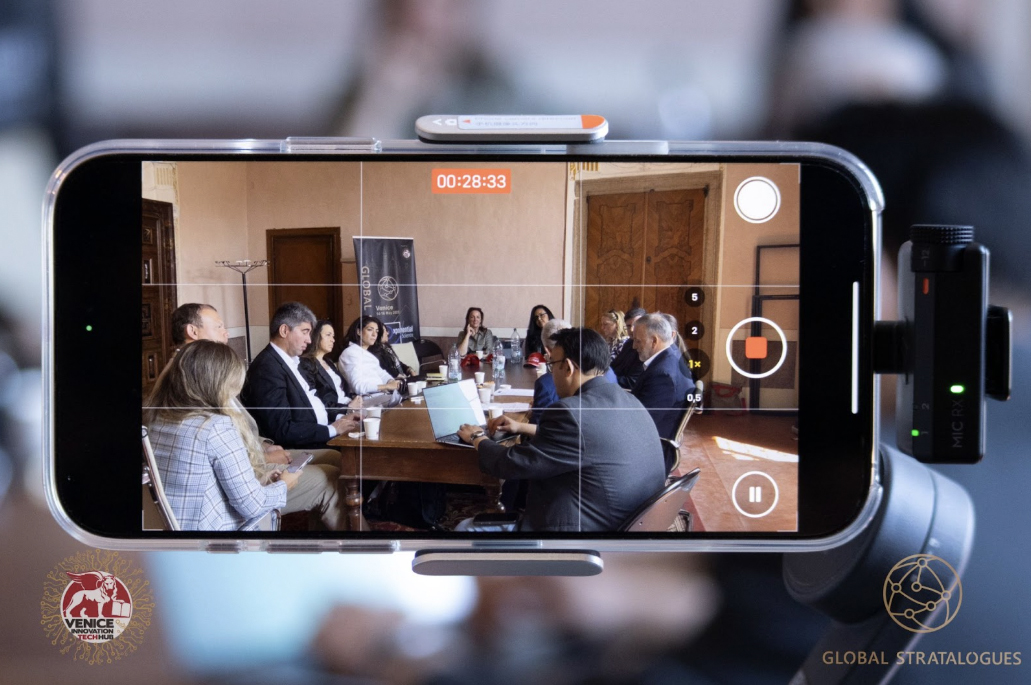
Dr. Talal Al Harbi arranged the visit to the world’s most iconic architecture exhibition. He is the accessibility expert for Saudi Arabia’s Giga Projects, part of the team designing cities for the 2030 World Expo and the FIFA World Cup. He had a powerful message: “We are building for future generations that will demand flexibility, dignity, and participation at every level.” His vision aligned with the forum’s core theme: that design—whether financial, urban, or digital—must be inclusive by default.
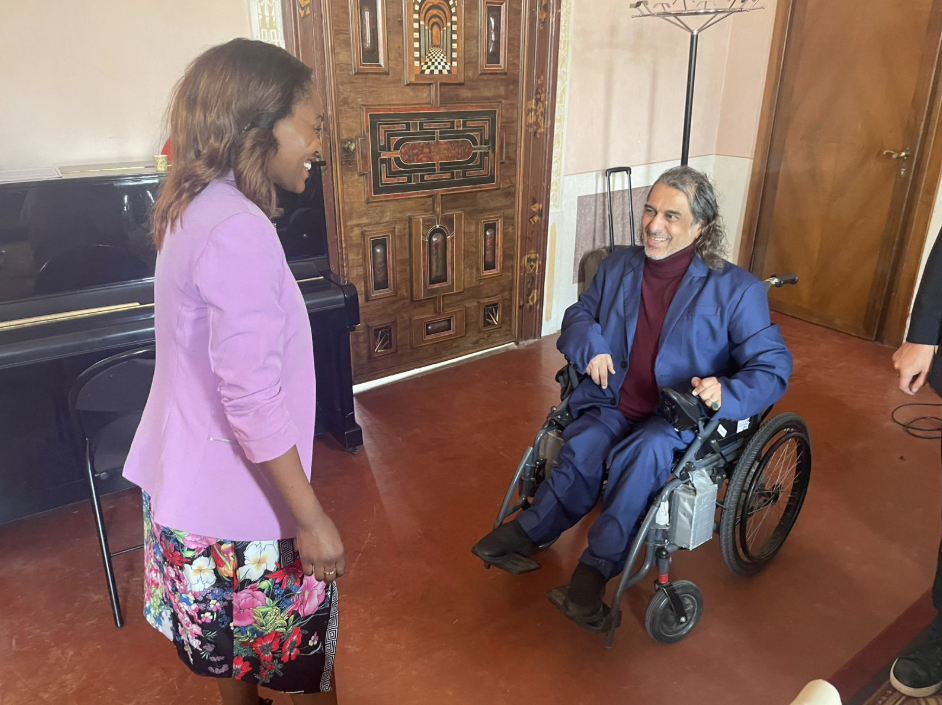
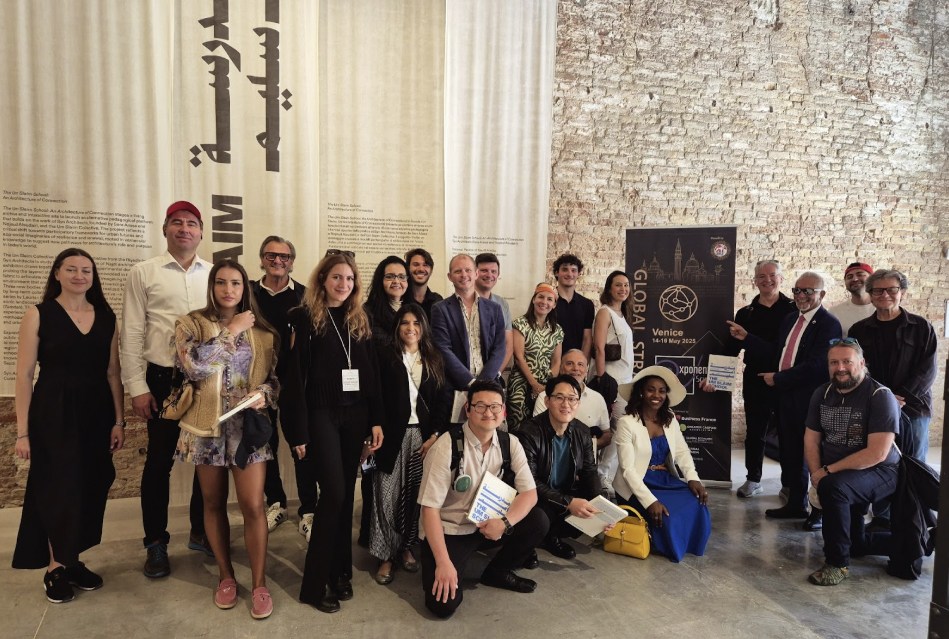
Rethinking Money’s Role
The core premise of the opening roundtable was on Impact Finance, health, and accessibility, led by Giselle Alers of the Global Economic Sustainable Development Commission (GESDC) and Jacqueline Winstanley, CEO of Universal Inclusion. Together, they challenged a fundamental assumption about finance: that making money and making a positive impact are separate goals. “We can’t continue seeing impact as a subset; it is the overarching frame for how we should think about investment,” declared Giselle Alers.
This new approach measures success beyond simple returns, factoring in job creation, environmental stewardship, and whether investments improve people’s lives. However, participants weren’t discussing charity — they were discussing profitable business models that happen to do good.
The Small Business Revolution
Anis Khan, founder of the Global SME Business Hub, argued that small businesses hold the key to transforming entire economies. He should know — he built a school in his mother’s village that now educates over 200 students. “Finance is a statement of values,” Khan explained. “Where we invest is what we value.”
The problem, according to summit participants, isn’t a lack of good small business ideas. Traditional finance systems often overlook smaller enterprises, especially in developing countries. Yet these businesses create most of the world’s jobs and drive innovation at the grassroots level.
Your Data as Your Paycheck
One of the most intriguing proposals came from Dr. Tomasz George, who works on AI-powered healthcare systems. He envisions a future where people own and profit from their personal data.
“Right now, health data is fragmented and underutilized,” George explained. His system would let patients aggregate their medical history, fitness tracker data, and genetic information into valuable datasets worth thousands of dollars per person.
The concept could provide new income streams for refugees, people with disabilities, and others excluded from traditional economic systems. Even governments could benefit, receiving a share of data revenues to fund healthcare improvements.
The entrepreneurial perspective was represented by Ilya Churakov, CEO of AI World Alliance, who emphasized the critical role of startup ecosystems in driving inclusive innovation.
“The future belongs to entrepreneurs who can build AI solutions that work for everyone, not just the privileged few,” Churakov observed. “We need investment frameworks that support this vision from day one.”
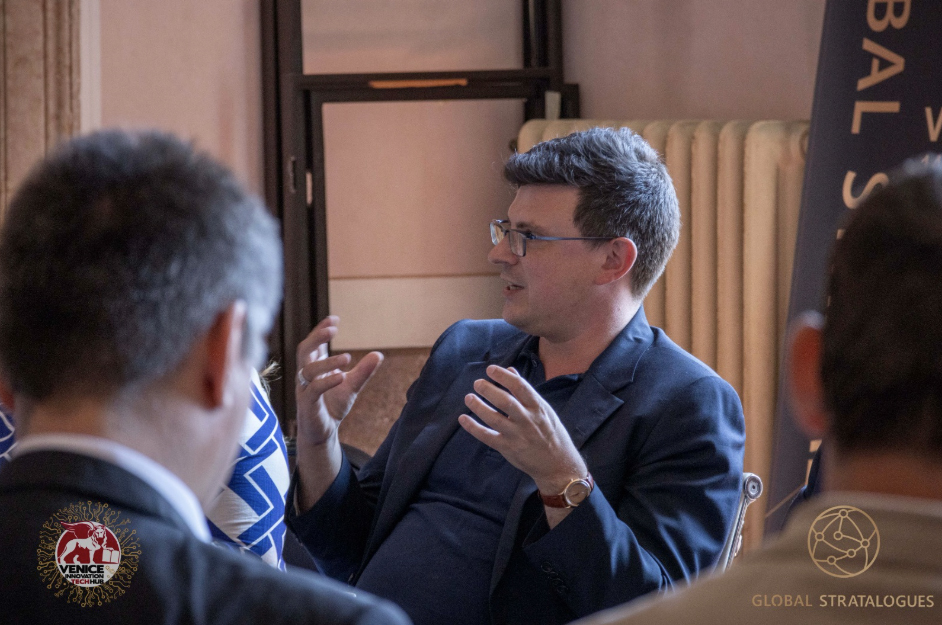
Bridging Global Divides
Murat Seitnepesov, president of the Greater Caspian Association, highlighted a striking imbalance: only 4% of global investment flows to emerging markets, despite 43% of investors wanting to invest there.
“The problem isn’t will—it’s infrastructure,” he said, noting that artificial intelligence could help bridge these gaps by enabling remote work and collaboration across borders.
In Switzerland alone, he pointed out, 300 billion Swiss francs sit in bank deposits. Redirecting even a small fraction through smarter investment vehicles could transform entire regions.
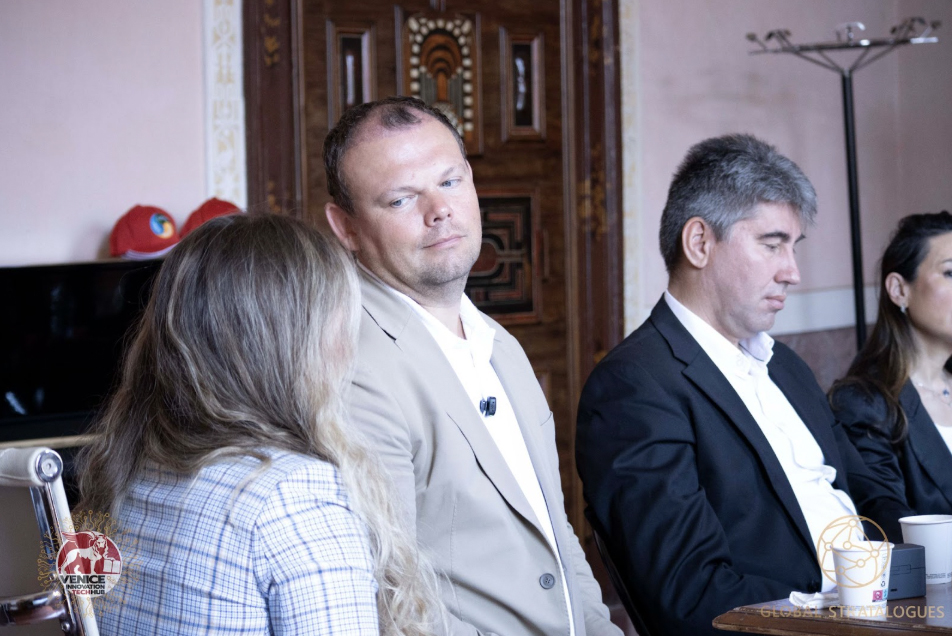
A Rooftop Concert to Remember
The summit’s closing night brought an unexpected full-circle moment. Saxophonist Scott Page returned to Venice 36 years after his performance with Pink Floyd at their legendary floating concert that drew 300,000 spectators to St. Mark’s Square. This time, the intimate rooftop performance at Palazzo Pissani captured the week’s spirit of bringing together seemingly different worlds. Page’s saxophone blended with Forieri’s jazz as the sun set over Venice’s historic canals — a reminder that the best innovations often come from unexpected collaborations, and tradition and innovation work best when they harmonize.
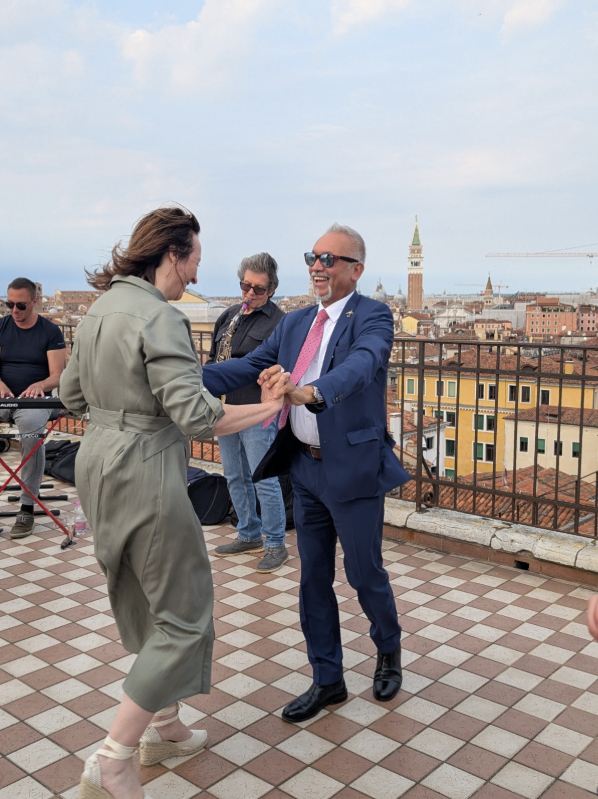
Landmark Policy Impact: From Venice to Global Implementation
The Venice gathering will build on the publication of the landmark Policy Briefing titled “Designing for Inclusive Futures: Policy Reflections on AI and Accessibility.” The paper, authored by Dr. Rukiya Deetjen-Ruiz of Zayed University and co-authored by Oscar Wendel, Executive Director of the GESDC for the Middle East was published in PriMera Scientific Engineering and synthesizes the key findings from the high-level roundtables and presents clear recommendations on how AI systems can be made inclusive from the outset. Central to the paper is the proposal for Accessibility Impact Assessments (AIAIs) as a formal regulatory tool to ensure that emerging technologies serve all members of society.
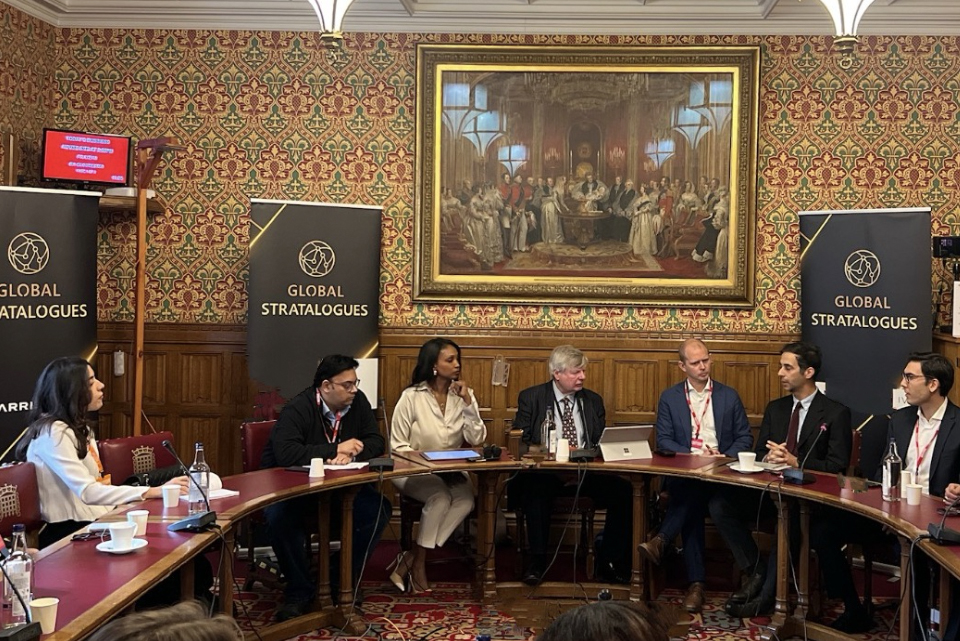
The Policy Briefing distills insights from the UK Parliament sessions held in January and served as a springboard for both the Global Stratalogues edition in Venice and the Inaugural Policy Roundtable hosted by the Qatar Financial Centre alongside the Qatar Economic Forum. In Venice, contributions from thought leaders such as blockchain policy expert Bartolomeo Poggi, AI World Alliance founder Ilya Churakov, and a dynamic group of finance and technology innovators helped shape the final recommendations, building on the momentum of a three-day forum that bridged institutions, disciplines, and geographies.
“Venice reminded us that inclusion is not only technical—it is cultural,” reflected Giselle Alers, Chair of GESDC. “Just as AI must reflect our values, cities must reflect our shared humanity.”
What’s Next
The Global Stratalogues will continue in Riyadh on December 16-17, where participants plan to develop concrete next steps for their vision of finance that builds rather than extracts. The policy briefing published today provides a roadmap for implementing the accessibility and inclusion principles discussed in Venice across digital and physical infrastructure.
As Oscar Wendel, the summit’s chairman, reflected: “The future of cities depends not only on how we build, but on how we connect across time, geography, and imagination.”
In Venice, where centuries-old architecture still shapes daily life, that message found the perfect backdrop. The question now is whether these ideas can be translated from the canal-side discussions to the boardrooms and city halls where real change occurs. With the publication of actionable policy recommendations and the commitment to continue these dialogues globally, the Venice Global Stratalogues may have provided both the inspiration and the practical framework needed to make that translation possible.
About GESDC and Global Stratalogues
The Global Economic Sustainable Development Commission (GESDC) is a global network advancing policies aligned with the UN Sustainable Development Goals. GESDC empowers public-private collaboration through strategic research, inclusive finance models, and ethical technology governance. In partnership with Global Stratalogues, the organization convenes roundtables worldwide—from Davos to Doha—to address critical issues at the intersection of innovation, regulation, and equity.
Read the Full Policy Briefing: https://primerascientific.com/journals/psen/PSEN-06-204



